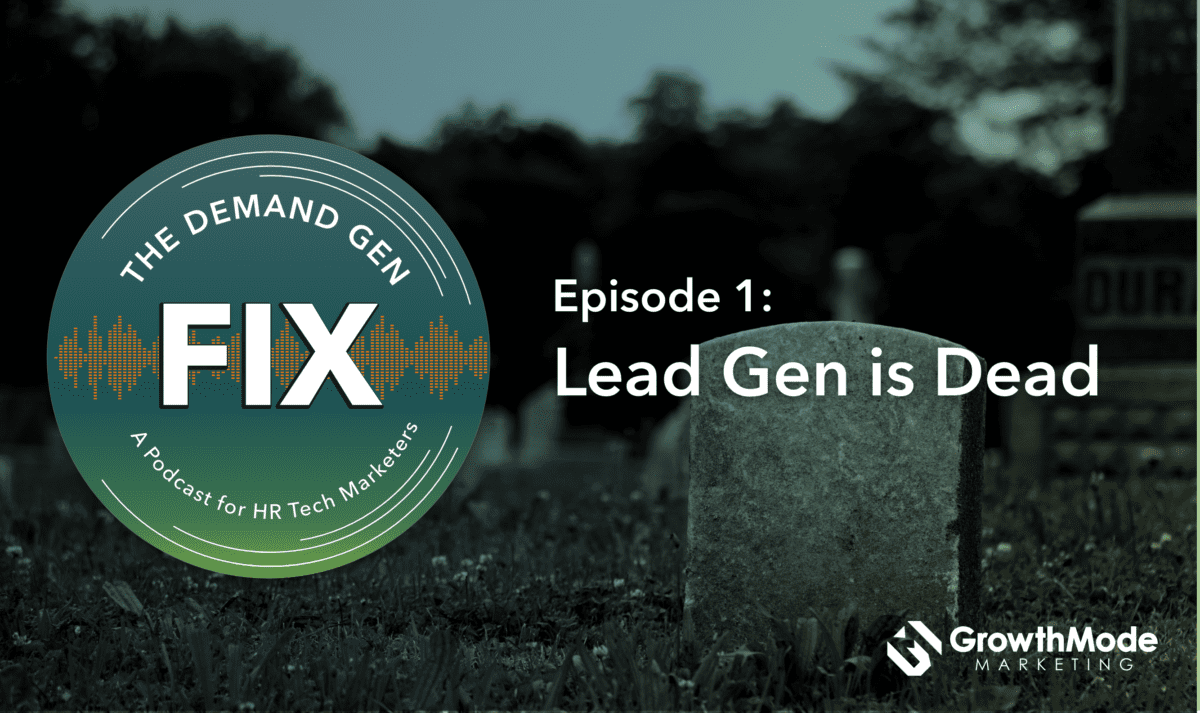This article was written by AI and is unedited. We are testing the technology to determine results.
In the fast-paced, ever-evolving world of Human Resources (HR), companies are turning to technology to streamline processes, improve efficiencies, and ultimately, revolutionize their approach to HR. This digital transformation is redefining the traditional HR function and giving rise to a new landscape – one that is defined by the intersection of HR and technology.
As it stands, simply having a great tech product isn’t enough to corner the fiercely competitive HR technology market. This is evident by the reported growth trajectory for the global HR tech market, projected to hit a staggering $76.5 billion by 2031. Leveraging potent marketing strategies to generate demand, reach target audiences, and generate quality leads becomes crucial in such a scenario. Marketing for HR technology companies become a vital piece of the puzzle to ensure continued growth and advancement.
As we, at GrowthMode Marketing, delve into the world of HR tech, we’ll explore how revolutionary trends such as AI, Machine Learning, Hybrid work models, and the illustrious blockchain, are shaping this landscape. We’ll look at the art of selling HR software, the importance of establishing powerful candidate experiences and the role of effective HR Technology Strategy. Needless to say, we’ll zero in on the power of demand generation for HR tech companies navigating these market trends and aiming for growth.
To give you a quick glimpse into what’s in store, we’ve compiled some key points that will anchor our discussion:
- Importance of AI and Machine Learning in HR Technology
- The need for security assured by Blockchain in HR Tech
- Significance of the consultant approach in marketing HR software
- The impact of creating a powerful candidate experience
- The need for an effective HR Technology Strategy
- The role of demand generation in the market growth of HR tech companies
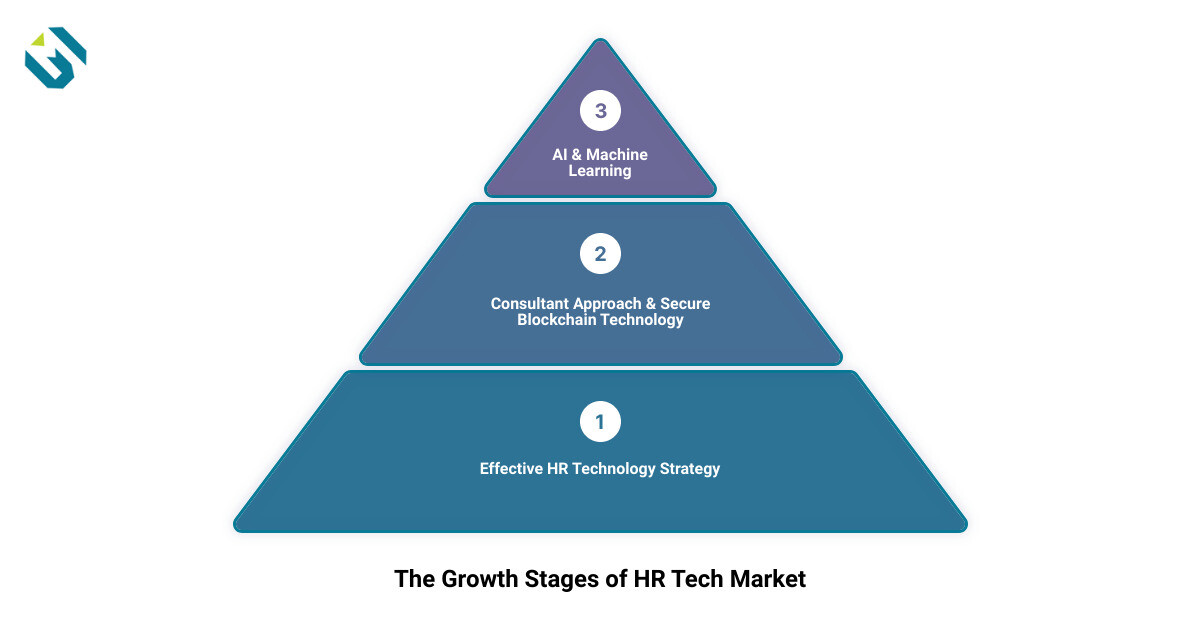
Join us as we take a deep dive into the fascinating world of HR tech, its current trends, the art of marketing, and the strategies that are revolutionizing HR tech businesses around the globe.
The Current Landscape of HR Technology Market
The HR technology market is a continually evolving entity, with new trends and technologies emerging regularly. As the digital world expands, the demand for efficient, effective, and innovative HR solutions grows exponentially. Today, we will explore three pivotal trends shaping the HR tech landscape: the rise of AI and Machine Learning, the shift towards hybrid work models, and the crucial role of blockchain in securing data.
The Rise of AI and Machine Learning in HR Tech
Artificial Intelligence (AI) and Machine Learning (ML) are no longer futuristic concepts. They have firmly infiltrated the HR tech market, transforming how organizations manage their workforce and HR processes. These technologies are instrumental in workforce analytics, enabling businesses to make data-driven decisions that enhance productivity and improve the overall employee experience. AI and ML are also helping HR professionals automate repetitive tasks, thereby saving time and reducing human error.
According to Engage Rocket, AI and ML can assist with everything from talent acquisition, performance management, to employee engagement, making them one of the biggest trends in HR tech. As we move forward, we can expect AI and ML to play an even more significant role in HR tech, shaping the future of this sector.
The Shift to Hybrid Work Models
The COVID-19 pandemic has accelerated the shift to remote work, leading to the rise of hybrid work models. This model, which combines in-office and remote work, is becoming increasingly popular among businesses worldwide. Consequently, there’s a growing need for HR tech solutions that support this new way of working.
The hybrid work model has created a demand for digitized and flexible HR tools capable of managing a geographically dispersed workforce. Employers now need HR software that supports remote onboarding, training, performance management, and employee engagement. As a result, HR tech companies that offer such innovative solutions are experiencing significant traction in the market.
The Importance of Data Security: The Role of Blockchain
With increased digitization and remote work, data security has become a top concern for businesses. HR departments handle a wealth of sensitive employee data, making them a prime target for cyberattacks. This is where blockchain technology comes in.
Blockchain provides a secure platform to store and manage data, making it an excellent solution for HR tech. It ensures the integrity and confidentiality of employee data, offering a much-needed layer of security in the digital age. As companies continue to prioritize data security, we can expect to see a greater adoption of blockchain in HR tech.
To sum up, the current landscape of the HR tech market is shaped by the rise of AI and ML, the shift to hybrid work models, and the importance of data security. Staying ahead of these trends is crucial for HR tech companies to remain competitive and meet the changing needs of businesses. At GrowthMode Marketing, we understand these market trends and help our clients leverage them to drive growth and success.
The Art of Marketing HR Software
Marketing HR software requires a unique blend of technical knowledge and human understanding. It’s not just about selling a product, it’s about showcasing how your technology can enhance HR operations, improve the employee experience, and ultimately drive organizational growth.
The Consultant Approach: Showcasing the Value of Your HR Tech
When it comes to marketing HR technology, it’s crucial to adopt a consultant mindset rather than a sales-focused approach. This is because, as per the research by GrowthMode Marketing, the main question HR tech buyers have is: “How will this technology help our HR departments become more efficient and make our jobs easier?”
As such, our role is not just to sell the software but to demonstrate its value and uniqueness. It’s about showing how our HR software can solve their current challenges and streamline their day-to-day operations. This involves identifying typical pain points and communicating how our software can alleviate these issues, ultimately delivering business value.
At GrowthMode Marketing, we listen to our clients’ feedback and shape our value proposition based on that. Our strategy is not just about selling a product, it’s about offering a solution that can transform their HR operations and contribute to their business success.
Building a Powerful Candidate Experience through HR Marketing
In the sphere of HR marketing, creating a powerful and positive candidate experience is paramount. This is achieved through a combination of target group-specific content (employer branding content) and a well-crafted recruiting marketing strategy. By building and maintaining relationships with candidates, we help our clients establish a strong employer brand that attracts top talents.
At GrowthMode Marketing, we ensure our clients’ marketing strategies are centered around the candidate. By focusing on customer service, increasing brand awareness, and fostering customer loyalty and commitment, we help HR tech companies create trust and competitiveness in the market.
The Role of Employer Branding Content in HR Marketing
Employer branding content is a key component of HR marketing. It helps in showcasing the company’s culture, values, and working environment to prospective candidates. A compelling employer brand story can resonate deeply with potential candidates and encourage them to become part of the organization.
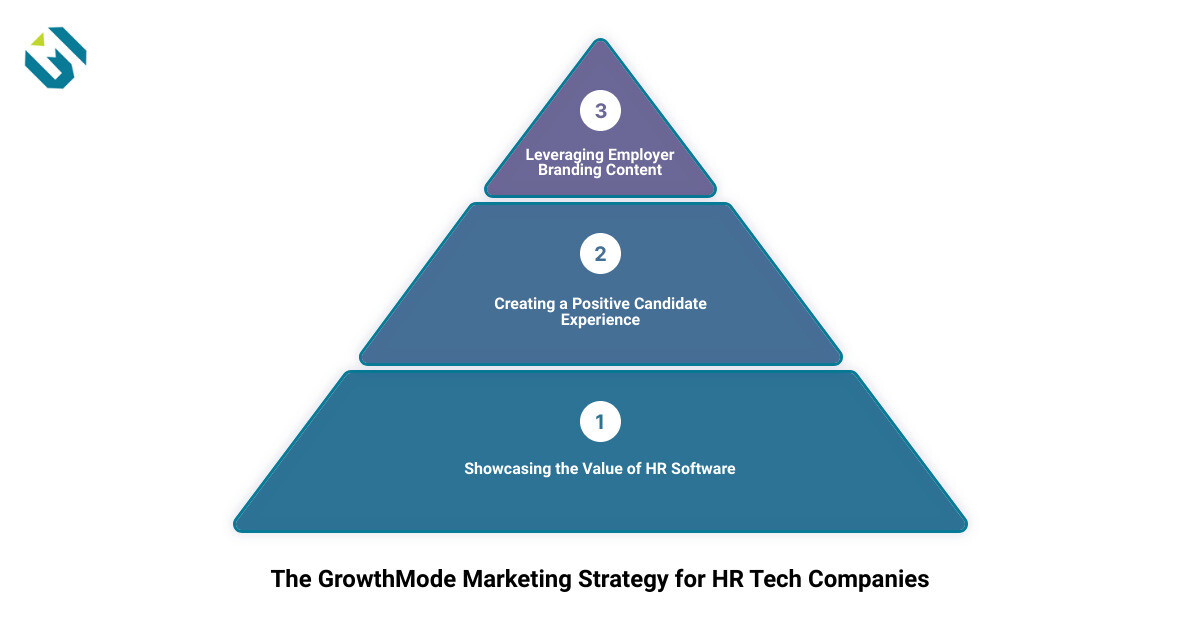
At GrowthMode Marketing, we understand the importance of brand storytelling in HR marketing. We work closely with our clients to create powerful employer brand narratives that connect with their target audience and engage them on a deeper level. Through our strategic approach, we help HR tech companies build long-term relationships with their customers and establish a trusted brand.
In conclusion, marketing HR software is about showcasing the value of your product, creating a positive candidate experience, and leveraging employer branding content. At GrowthMode Marketing, we excel in these areas, helping our clients navigate the crowded HR tech market and achieve their growth goals.
Crafting an Effective HR Technology Strategy
At GrowthMode Marketing, we understand that creating a robust HR technology strategy is essential for any HR tech company looking to stay ahead in a rapidly evolving market. A well-crafted strategy not only responds to current trends and meets the changing needs of businesses but also aligns with your organizational goals and objectives, paving the way for long-term success.
Aligning HR Tech with Organizational Goals and Objectives
Aligning HR tech with organizational goals and objectives is a crucial step towards creating a successful HR technology strategy. At GrowthMode Marketing, we help HR tech companies understand the importance of this alignment and how it can drive their growth.
A well-aligned HR technology strategy means using HR tech solutions to support the overall business objectives. Whether it’s improving employee engagement, streamlining HR processes, or supporting remote work, the HR tech solution should be a tool that facilitates the achievement of the organization’s goals.
Think of your HR technology as a ship, and your organizational goals as the destination. If your ship isn’t sailing towards your desired destination, you need to adjust its course. Similarly, if your HR tech isn’t helping you achieve your business objectives, you need to rethink your strategy.
The Importance of a Comprehensive Decision-Making Spectrum
In developing your HR technology strategy, it’s essential to consider the decision-making spectrum. This involves identifying the key players in the HR technology buying process and understanding their roles and concerns.
As we’ve learned through our experience at GrowthMode Marketing, the decision maker, usually a C-level project sponsor, is primarily concerned with the ROI associated with an HR technology investment. They want to see data that backs up the ROI and want a long-term investment that pays off.
Tailoring your strategy to address the needs and concerns of your audience will put you way ahead of your competition. Remember, who you talk to initially is likely NOT the only person you talk to and rarely the person who has the final say in the decision-making process.
In conclusion, crafting an effective HR technology strategy is all about alignment and comprehensive decision-making. It’s about ensuring that your HR technology supports your organizational goals, and that you’re reaching the right people within the organization at the right point in their buying journey. At GrowthMode Marketing, we’re here to help HR tech companies navigate these complexities and create a strategy that positions them for success in this rapidly evolving market.
In the next section, we’ll delve into the power of demand generation for HR tech companies and how it can help them navigate these market trends and drive growth.
The Power of Demand Generation in HR Tech Marketing
In the ever-evolving and cluttered landscape of HR Tech, standing out is a challenge. However, with a well-executed demand generation strategy, HR tech companies can cut through the noise and drive growth. This involves creating a compelling brand story, communicating the value of your solution, and nurturing leads until they are ready to engage. Let’s delve into these components and see how they contribute to successful HR tech marketing.
Breaking Through the Clutter: Building Brand Awareness and Credibility
In a sea of similar voices, establishing a unique brand identity is essential. An impressive brand story that resonates with clients not only differentiates your offering but also fosters long-term relationships. As Jordan Wahl, Content Marketing Manager at G2 says, “Your brand strategy is one of the most important parts of your marketing plan. Its purpose is to create long-term relationships with your customers so that you can ultimately build a brand that they trust.”
One way to achieve this is by focusing on the value proposition of your HR tech solution. This involves identifying typical pain points of your clients and communicating how your product can help them overcome these challenges. Remember, your prospects are not just interested in the technical aspects of your software; they want to know how it will make their jobs easier and their HR departments more efficient.
Another strategy is to leverage SEO and pay-per-click programs to drive organic traffic to your site, thus boosting your brand’s online presence. Your brand should be immediately recognizable and distinct, helping you stand out in the saturated HR tech market.
Creating Market Demand: Uncovering Interested Prospects
Creating market demand is about nurturing your audience until they’re ready to engage. This involves a deep understanding of your audience’s needs and delivering personalized content that addresses those needs. By understanding your customer’s goals, you can create more targeted campaigns that encourage prospects to take the next step.
For instance, personalized email campaigns, based on customer behavior or specific actions taken, can significantly increase transaction rates. Also, ensuring that sales and marketing teams work hand-in-hand can provide valuable insights into what content resonates with prospects, helping guide potential customers through the sales funnel more effectively.
In essence, demand generation for HR tech companies involves building brand awareness, establishing credibility, creating market demand, and fostering collaboration between marketing and sales. By focusing on these key areas, your company can unlock the secret to skyrocketing your demand generation activities.
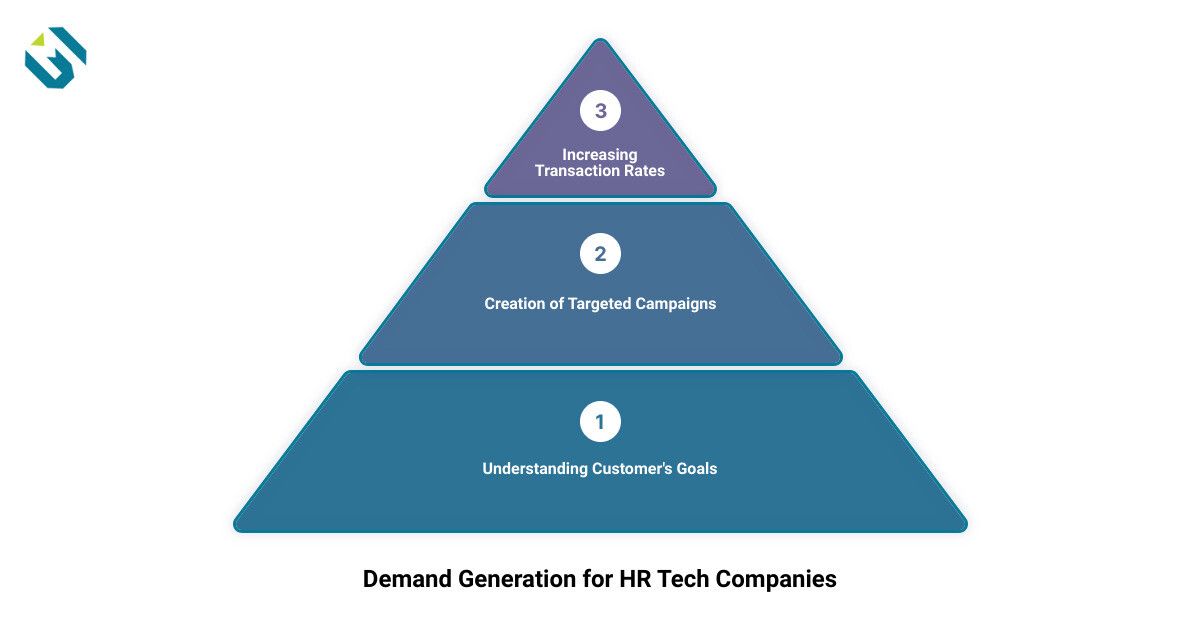
In the next section, we’ll look at real-life examples of HR tech companies that have successfully leveraged marketing to drive their growth.
Case Study: Success Stories of HR Tech Companies
Imagine standing out in a crowded HR tech market, not just as another voice, but as a trusted authority in the industry. That’s exactly what some HR tech companies have achieved through effective marketing strategies. By understanding their audience’s needs, creating engaging content, and leveraging the power of social media, these companies have managed to transform their brands. Let’s take a closer look at how they did it.
How HR Tech Companies Leveraged Marketing for Success
Take the example of Zoho, a leading HR tech company. They host monthly webinars for their product, Zoho People, covering topics that are relevant to their users such as an ‘Overview of Zoho People’ or ‘What’s New in Zoho People’. These webinars offer a dynamic and impactful way to deliver their message, showcase the features of their software, and provide expert tips and advice. They also leverage email marketing to send their users timely updates and resources to ensure a seamless user experience.
Another successful company, LeenaAI, is known for its comprehensive content marketing strategy. They regularly publish guides, ebooks, and research reports on various HR topics, educating their audience while promoting their brand. Their content strategy is targeted and well-rounded, effectively positioning them as thought leaders in the HR tech industry.
Lessons Learned from Successful HR Tech Marketing Campaigns
The success stories of these HR tech companies offer valuable lessons for others in the industry. First and foremost, understanding your audience is key. By knowing what your users need and want, you can create content and services that truly resonate with them.
Secondly, leveraging different platforms can significantly boost your marketing efforts. From webinars to social media to email marketing, each platform offers unique benefits and opportunities to engage with your audience. By using these platforms strategically, you can reach a wider audience and increase your brand visibility.
Lastly, consistency is crucial in marketing. Regularly updating your content and staying active on social media helps to maintain engagement and keep your brand at the forefront of your audience’s minds.
In conclusion, marketing is a powerful tool for HR tech companies. By learning from the successes of others and implementing effective strategies, you can revolutionize your marketing efforts, stand out in a crowded market, and drive high-quality leads that contribute to revenue growth.
In the next section, we’ll look at the future of marketing for HR Tech companies and delve into the evolving trends in HR tech marketing.
Conclusion: The Future of Marketing for HR Tech Companies
In this digital age where the HR tech market is predicted to reach an impressive $76.5 billion by 2031, the role of marketing has never been more vital. The future of marketing for HR tech companies lies in leveraging innovative strategies, staying ahead of evolving trends, and harnessing the power of demand generation.
The Evolving Trends in HR Tech Marketing
The HR tech marketing landscape is shaped by a few key trends. Among them, the growing importance of AI and Machine Learning, the shift to hybrid work models, and the crucial role of data security have taken center stage.
AI and Machine Learning are becoming fundamental in workforce analytics and employee support, helping to provide insights and make data-driven decisions. Hybrid work models remain the leading model for many companies, underlining the need for flexible and digitized solutions. Moreover, as companies digitize their HR functions, data security has become paramount, with Blockchain emerging as a potent solution to secure inner data.
These trends have a significant impact on how HR tech companies approach their marketing strategies. It’s no longer about just selling a product; it’s about providing a solution that addresses these trends and meets the evolving needs of businesses.

The Role of Marketing in Shaping the Future of HR Tech
Marketing plays a crucial role in shaping the future of HR tech. It helps companies navigate the complexities of the market, stand out from the competition, and drive growth. A well-executed marketing strategy, such as those provided by GrowthMode Marketing, can attract the right audience and convert them into loyal customers.
Demand generation is a pivotal part of this strategy. It involves understanding the nuances of the target audience, creating valuable content, and leveraging the power of SEO, PPC, and social media to reach potential customers. It’s a continuous process that requires constant nurturing and optimization to keep pace with the changing market dynamics.
However, the power of marketing goes beyond just demand generation. It also involves building a strong brand identity, nurturing leads, reaching out to prospects efficiently, and leveraging metrics for data-driven decisions. By focusing on these aspects, HR tech companies can successfully navigate the cluttered HR tech market and drive meaningful engagement that accelerates growth.
In conclusion, the future of marketing in HR tech is promising. With the right strategy, tools, and a partner like GrowthMode Marketing, HR tech companies can overcome the challenges of a crowded market, differentiate themselves from competitors, and propel their growth.
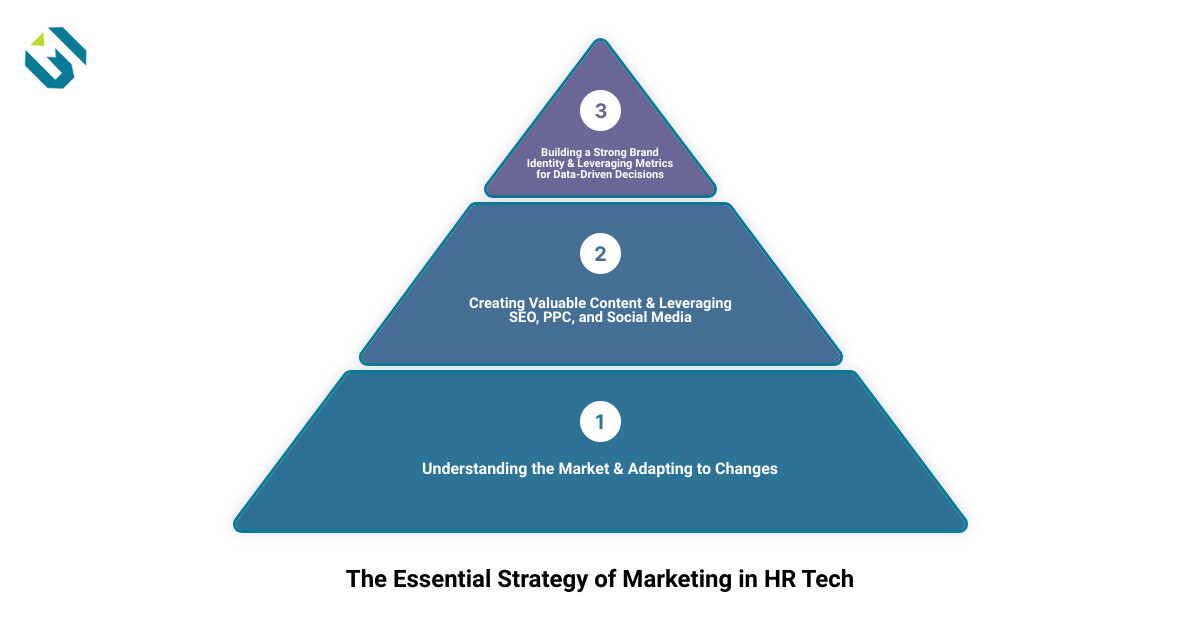
In the world of HR tech, the power of marketing is not just a trend, but an essential strategy for success. It’s about understanding the market, adapting to its changes, and leveraging the right strategies to connect with potential customers. As we continue to navigate the digital highways of the HR tech landscape, the role of marketing will only become more critical in shaping the future of HR tech.





